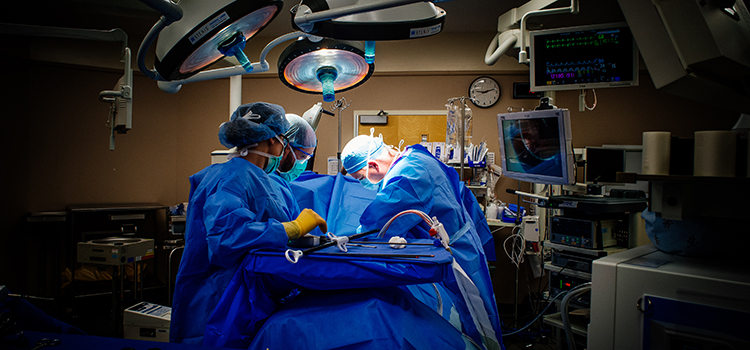
The UAB Liver Transplant Program began in 1983, and it maintains robust clinical and basic science research efforts. The program has performed approximately 2,700 liver transplants – distinguishing it as one of the nation’s most experienced – and our outcomes consistently rank among the best in the United States.
Our liver research focuses primarily on liver transplant candidate evaluation, management and outcomes for adults, ensuring that culturally and ethnically appropriate assessment strategies are used to eliminate age and racial health disparities.
The focus of our basic science research generally relates to the efficacy of various methods for cold storage and to liver ischemia with consequent reperfusion injury, which is a significant complication in liver transplantation that can predispose patients to a profound reperfusion syndrome, resulting in primary graft nonfunction and initial poor function of the graft. Recent studies have sought to provide the foundation for future mechanistic studies to elucidate the molecular events associated with nitrite, BD and islet transplantation and to establish rational interventional therapeutic strategies to combat diabetes.